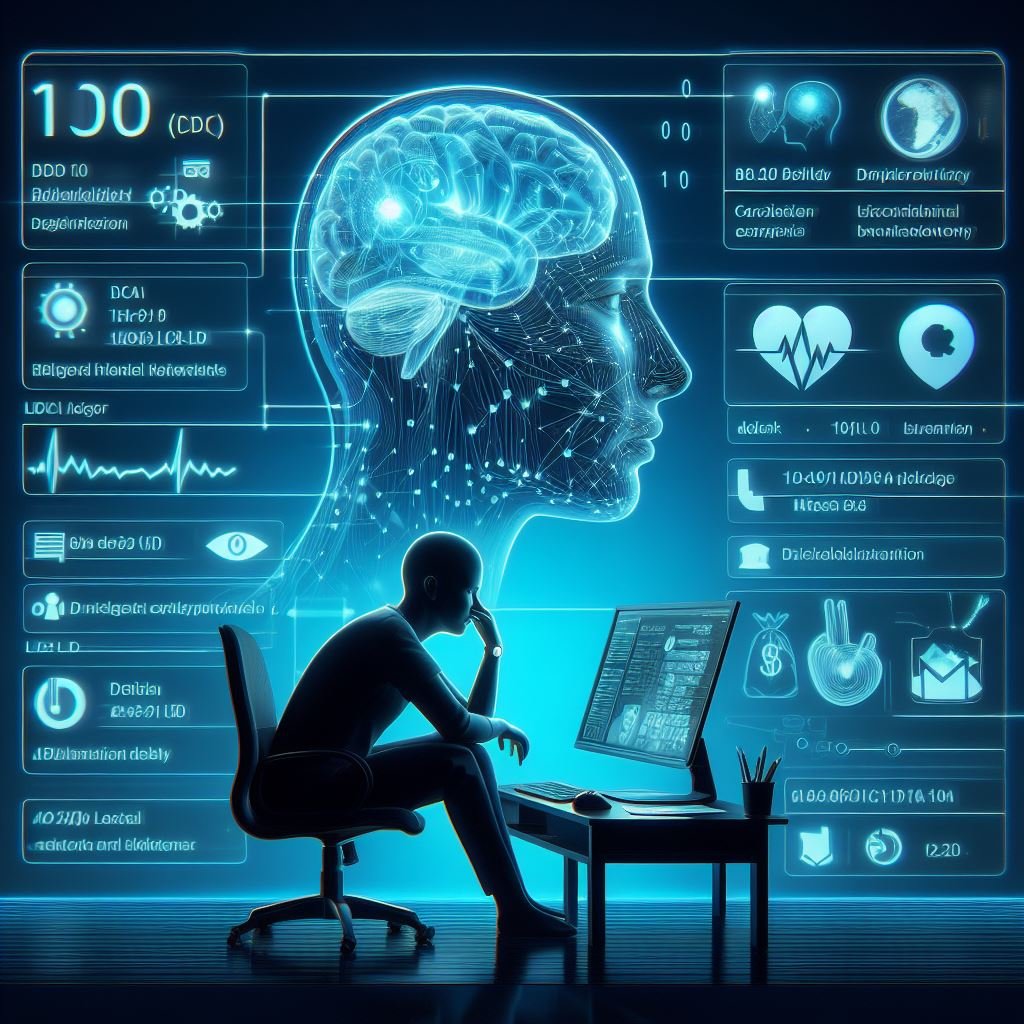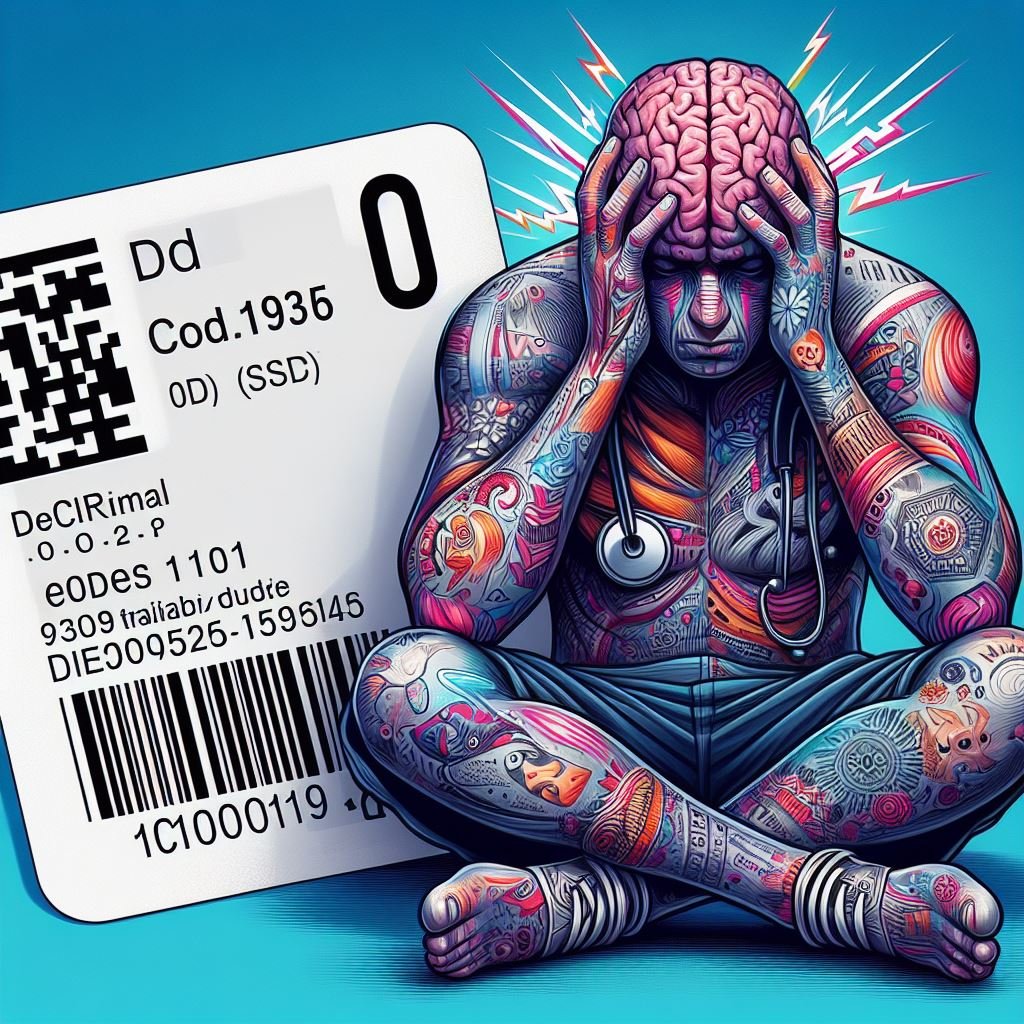ICD Code 10 for Bipolar Disorder
The interest in mental health disorders in terms of extensive research and clinical studies dates back a long time, and one of the conditions that has gotten much attention is bipolar disorder, which I also call F31 by using the International Classification of Diseases (ICD-10 code). This appalling state of mind, characterized by extreme variation in mood from manic highs to depressive lows greatly influences the life and mental health of affected individuals.
Bipolar disorder, according to ICD 10, involves various types, with each specific to manifestation, subtype, and symptoms. Identifying the complexities of the aforementioned illness should be the primary factor in the process of diagnosis, treatment, and enhanced quality of life for those people who have this disease. We are going to look at ICD Code 10 for Bipolar Disorder.It will be a useful guide for us in 2024.

Symptoms of ICD Code 10 for Bipolar Disorder:
Manic Episodes:
- High access to fortunate and eulogic feelings.
- I enjoy having these positive feelings that make me more excited and energetic in my everyday routine.
- The hallmarks of those are excessive thoughts and a lack of fluency.
- Reduced sleeping.
- Instantaneity and the tendency to act without forethought and self-reflection.
- Sweeping self-conceptions or elevations.
- A state of distractedness and captivity in the form of a constant struggle with attention.
Depressive Episodes:
On the other hand, depressive episodes associated with ICD code 10 for bipolar disorder can manifest as:
- a sedate mood for a long period and a sense of being empty.
- Previous likes or love for certain activities stop being enjoyed by an individual.
- The most notable symptoms are the changes in eating habits and the excess weight.
- Illness or constant sleepiness
- The body goes through fatigue as well as not having enough energy.
- These could be manifested by a loss of self-esteem or through an unbearable amount of guilt.
- Generation of unclear ideas and execution of the relevant tasks.
- Repeated occurrence of contemplations on mortality or death.
It should also be stressed that the intensity and length of these attacks may vary excessively, which explains why a person with an ICD-10 bipolar disorder may remain stable at times with brief periods of disruption.

Treatments for ICD Code 10 for Bipolar Disorder:
Medication:
Mood stabilizers like lithium, valproic acid, and lamotrigine are the ones that are most often used to help with the habit of mood changes common with ICD code 10 for bipolar disorder. Such medications as antipsychotics and antidepressants can be used together with mood stabilizers to cover some more specific symptoms of the disorder.
Psychotherapy:
There are various psychotherapy types, including CBT, interpersonal and social rhythm therapy (IPSRT), and family-focused therapy, which can work for individuals with bipolar ICD code 10, depending on what approaches work for them. These therapies aim to foster a person’s ability to deal with stress in healthy ways, such as by learning new skills that involve, among others, stress management, communication in relationships, and triggers.
Lifestyle Changes:
Support and education:
Along with the medical and therapeutic approaches that are introduced, it is possible for support groups and educational materials to also serve a great service to the people who have bipolar disorder and their loved ones. This information provides support from the community, sharing of experience, and the essential tricks of handling the symptoms of the disorder.
Conclusions about ICD Code 10 for Bipolar Disorder.:
Bipolar disorder coded for ICD 10 addresses the multiple and intricate nature of the disease by using a wide scope of therapy that focuses on each specific patient. Therefore, by acknowledging the symptoms, resorting to the fact that a combination of medication, psychotherapy, and lifestyle changes is significant, and seeking help from healthcare professionals and family members, individuals with ICD code 10 for bipolar disorder can obtain better symptom management and a better quality of life.
At this point, it becomes crucial to create awareness and make mental health problems such as ICD-10 bipolar disorder and codes decriminalized; hence, we create a conducive and affirming environment for the affected individuals. Through ongoing study, teaching, and interpretation, we can, in the long run, change this disease for the better by improving the lives of those living with it. That was all about ICD Code 10 for Bipolar Disorder.

FAQs about ICD Code 10 for Bipolar Disorder.
What is the 10th edition of diagnostic criteria for bipolar disorder, or what is DSM-5?
The ICD-10 code 10 for bipolar disorder is F31; this is the global standard classification of diseases (International Classification of Diseases, ICD-10).
What is the main symptomatic condition of a manic phase?
Characteristic mania signs are a euphoric mood, greater energy or a plethora of ideas, fast thoughts, reduced sleep, impulsive behavior, and exaggerated importance.
Beware of the prevalent depressive symptoms of ICD-10 bipolar disorder?
Depressive symptoms would include everything from feeling slower than usual to thoughts about ending your own life. It may manifest through sadness, loss of interest, changes in appetite or sleep, tiredness, worthless thoughts, and difficulties concentrating.
How does ICD code 10/DDavis categorize bipolar disorder treatment?
Treatment often encompasses a combination of medication (mood stabilizers, antipsychotics, and medicines), cognitive-behavioral therapy (CBT), interpersonal skills refresher therapy (IPSRT), family therapy, and lifestyle changes.
We would like to know whether bipolar disorder could develop in early childhood or adolescence?
Can the onset of bipolar disorder (episode beyond the childhood/adolescent stage) be used as an example or a constant reminder (ICD code 10).
How can daily routines contribute to the effective treatment of ICD code 10 BD?
Exercising regularly, observing sleep quality, taking a balanced diet, practicing stress management methods, and avoiding alcohol or drugs can help you manage your symptoms.
Do mood-alteration episodes in ICD-10 bipolar crop up in a predictable manner?
Not merely though, assorted episodes may differ in degree, length, and progression of manic and depressive outcomes.